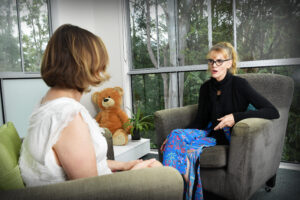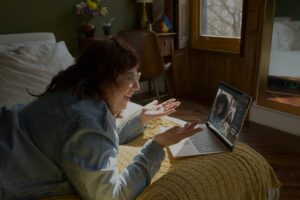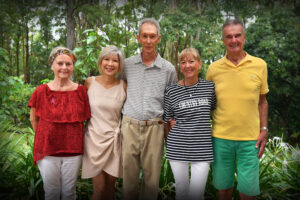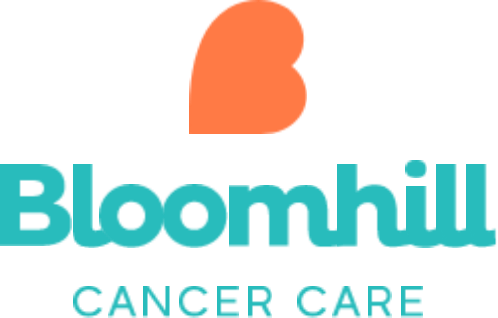
The information in this document is based on resources from Breast Cancer Network Australia (BCNA), Cancer Council, Macmillan (UK) Cancer Centre. All information provided by Bloomhill is based on research and best practice guidelines. Our model of care utilizes the Clinical Oncology Society of Australia (COSA) domains of wellness along with available clinical evidence. Always consult your care team regarding matters that affect your health. This is a guide intended for information only.
A cancer diagnosis can be scary and overwhelming. Cancer and cancer treatments can impact your life in so many ways, but something that is not often talked about or recognised but can be significant and distressing for many is loneliness and isolation. You may have a very supportive network of family and friends surrounding you, yet cancer can still be a lonely and isolating experience. As much as others try to sympathize with your situation, unless someone has directly been impacted by cancer themselves, it is hard for them to understand the social, emotional, physical and financial burdens that this can have on one’s life; and friends and family can withdraw from you, or treat you differently to how you wish. Not feeling well enough to participate in social activities, and the business and overwhelming feeling of living with cancer can also contribute to feelings of loneliness and isolation.
That feeling of isolation and loneliness can be distressing and you may not fully comprehend why you are feeling the way you do, even when you are in a room full of people that love you and support you. Just know that you are not alone in feeling this way. Many people living with cancer feel the way you do. Here are some ways to connect with others, and help with feelings of isolation and loneliness.
Reach out to friends and loved ones for help and support:
The cancer journey is not one you can travel alone. Receiving support and care from loved ones is important, whether that is for help with transportation, company at appointments, financial assistance, emotional support, walking your dog, child care, or help around the house. Reaching out to friends and loved ones is not just important for the practical help when you are exhausted and overwhelmed, but it helps to maintain connection, and reduces feelings of isolation. 
For many, asking for help can be hard, and you may feel like you are a burden to your friends/loved ones. It is important to be aware, that when you are diagnosed with cancer, your loved ones are most probably willing to do whatever it takes to support and care for you, as they feel it is all they can do. To them, you are not a burden. Ask yourself this, if the roles were reversed and your loved one was diagnosed with cancer, would you be willing to do all you can do to makes this situation easier for them?
Prioritise time for things you and enjoy and spending time with others:
With doctors’ appointments, attending treatment, and trying to manage side-effects, it can sometimes feel like you don’t have any spare time or energy to spend with your family and friends. With so much going on it can be easy and understandable to avoid going out and seeing friends/family because ‘Fighting Cancer’ is your only priority. In-between all the medical appointments and business of cancer, ensure that you are setting time aside to do things you love with your friends and family when you feel up to it.
Planning for those anniversary dates, or holiday seasons:
When we are coming up on anniversary dates, or even holiday season it can be difficult to know what to do. The best thing you can do is make a plan for what you will do on a particular day. Think about;
- who you want to connect with
- what activity you would like to do – something in remembrance of a loved one, or just a mindless activity that you enjoy or just do
- then call, text or email those you would like to share this activity with
Making a small plan now, prepares you mentally and emotionally to know what you will be doing on days which might be difficult.
Connect through support groups and group activities:
There are numerous support networks and services available that offer connection for people living with cancer. These include;
- Online peer to peer networks

Bloomhill clients and Head and Neck Cancer Sunshine Coast members Carol Adams, Christina and Chris Fletcher, Julie and Peter Lewis. Picture: Patrick Woods.
- Cancer specific support groups
- Facebook cancer groups
- Bloomhill has a range of local support groups
- Bloomhill group activities such as yoga, Pilates, Qigong, meditation, Art therapy and gym classes are all welcoming, supportive and inclusive, and a great way to connect with others.
- Bloomhill’s Lived Experience Group also arranges opportunities to connect with others in areas of interest such as ‘Pooch Owners and Lovers’ meet up, or the new ‘Chatterbox’ series where you can come and share your interests, hobbies and life experiences. Details of these events and all of the group activities are on our client calendar and updated regularly.
When feelings of loneliness and isolation are affecting your emotional wellbeing it can also be very beneficial to speak with a psychologist/counsellor. Meet our care team.
Resources for further information:
If you have any questions, or want to talk with one of the Bloomhill nurses about Isolation and loneliness, or any of the services and support available at Bloomhill then please feel welcome to email [email protected], call 54445 5794, or pop in. We are here to support.
To arrange an appointment with our counsellors and physiologists please contact reception on 5445 5794. For more information on support groups, peer to peer networks, and group activities held at Bloomhill, visit our website www.bloomhill.com.au, or speak with one of the Bloomhill nurses.
If you are feeling distressed, please also consider a helpline, Lifeline on 13 11 14, Beyond Blue at www.beyondblue.org.au.



